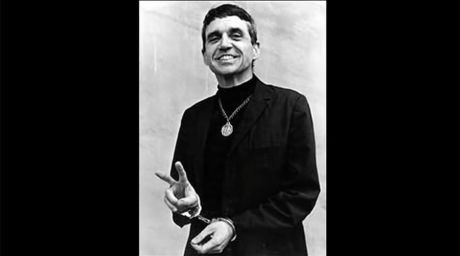Obituaries
You are here
Anti-War activist Daniel Berrigan dead at 95

May 24, 2016
One of the iconic opponents of the Vietnam War, US Jesuit priest Daniel Berrigan, passed away in New York on April 30, nine days short of his 95th birthday. Together with his brother Philip, also a priest, they led a group of mostly Catholic radicals in several high-profile acts of civil disobedience over a 20-year period extending into the early 1980s.
The most famous of these was the public burning of draft records In Catonsville, Maryland in May 1968. After a lengthy trial the “Catonsville Nine” were sentenced to three years in prison in 1970, but the two Berrigans went underground and eluded arrest for several months, during which time they were on the FBIs most-wanted list, and eventually on the cover of Time magazine.
Daniel Berrigan was a university lecturer in several Northeast universities, but mostly at Fordham University in the Bronx. He was also a biblical scholar and poet, the author of some 50 books.
In 1968 he travelled to Hanoi with historian Howard Zinn in a gesture of opposition to the Vietnam war. In 1980 the Berrigan brothers were also involved in a high-profile act of civil disobedience in King of Prussia, Pennsylvania, where they were part of a group who symbolically damaged some nuclear warheads. The eight intruders, known at “The Ploughshares Eight,” were charged with various offences, and after a 10-year legal battle, sentenced to two years in prison.
The Berrigans saw racism, poverty, militarism and capitalist greed as interconnected parts of an unjust society. They confronted the religious bureaucracies as racist, accomplices to war, and hostile to the poor. Daniel remained a Jesuit all his life, but Philip left the priesthood to found Jonah House, a faith-based community centred on non-violence and resistance. Philip passed away in 2002, having spent a total of 11 years in prison for acts of civil disobedience. Daniel took part in the Occupy Wall Street in 1990.
It is worth noting that the current Pope, who has taken several progressive steps, is also a Jesuit, the first member of that religious order to hold that office. Also, in El Salvador the Jesuits were vocal supporters of the revolutionary cause during the civil war, which led to six of them being assassinated by the military in 1989.
Full credit should be given to the Berrigan brothers for helping put the anti-war movement on the national agenda, and encouraging others to oppose the military draft and the war in Vietnam. Sadly, however, after 50 years the US continues to pursue military solutions abroad, and to maintain a nuclear arsenal. Their actions were primarily symbolic, hoping the conscience of others would be awakened and that change would result.
Section:









